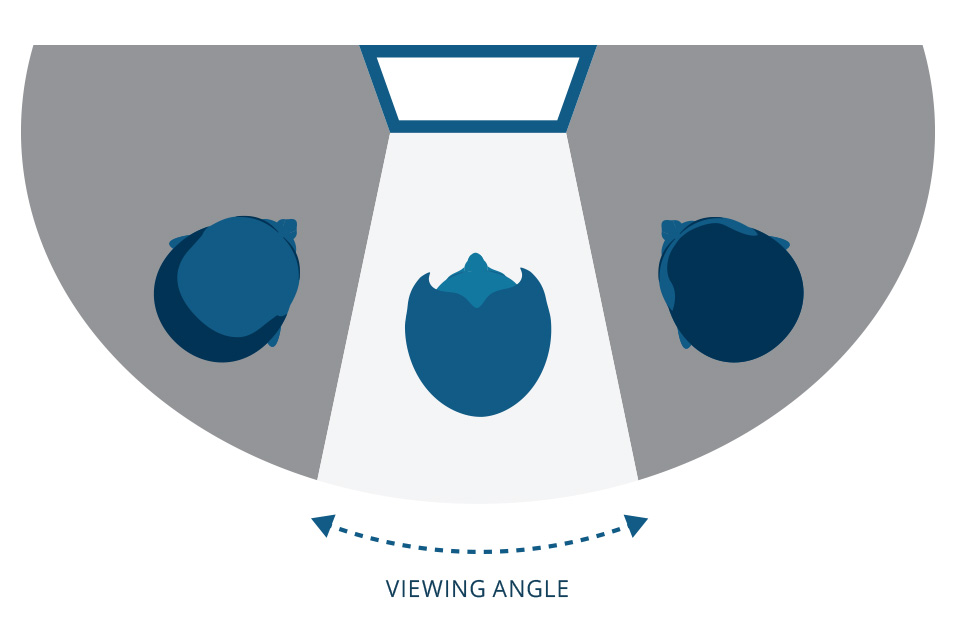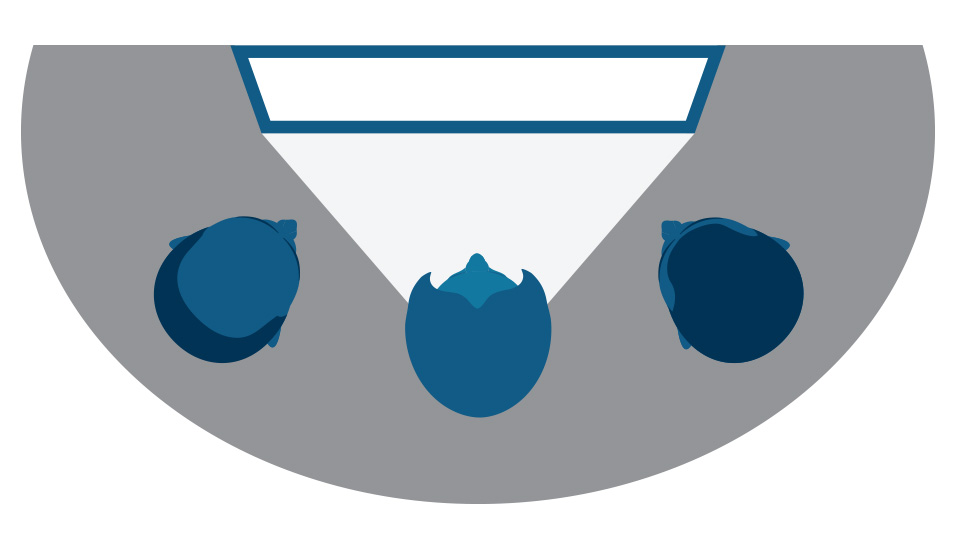Enabling the vision of tomorrow through display emission management.
Incom’s DARC Glass uses a high optical density matrix to control display emission intensity and directionality. Within the specified viewing angle, a bright, clear image is displayed; while outside the viewing angle, the image is completely black. Incom manufactures a highly customizable technology that controls visibility, privacy, and reflections of LCD displays. DARC Glass—with its high tolerance and robust nature—can be embedded behind the display for a much sharper and cleaner look. The technology allows for innovative displays to maintain strict cockpit and cabin requirements.
Features
Applications
Application Example of DARC Glass
Automotive Entertainment Passenger Display


Two Types of DARC Glass
DARC Glass: Normal
With this type of DARC Glass, the viewing cone is defined by a specified viewing angle and is uniform across the entire surface of the glass. The viewing angle is fully customizable and the viewing cone can be angled in any direction relative to the surface of the glass.
DARC Glass: Directed
This advanced type of DARC Glass may be necessary in applications utilizing very wide/tall displays and requiring a narrow viewing cone. In this situation, DARC Glass: Normal may restrict the ability of the viewer to see the entire display because they may be outside the viewing cone of the far ends of the display. DARC Glass: Directed solves this issue with enhanced control. An advanced manufacturing process is used to achieve non-uniform viewing cones across the surface of the glass. In other words, the viewing cone for every point on the glass is angled and directed to a defined viewing point. The location and size of the viewing area is fully customizable.




